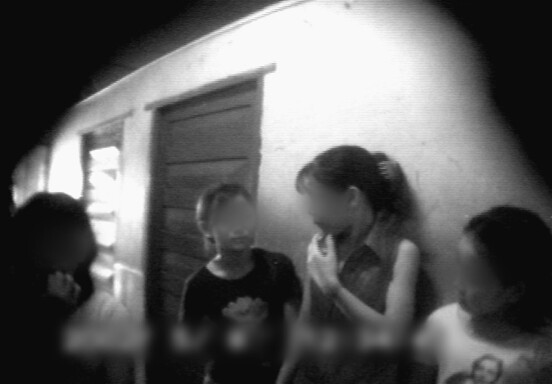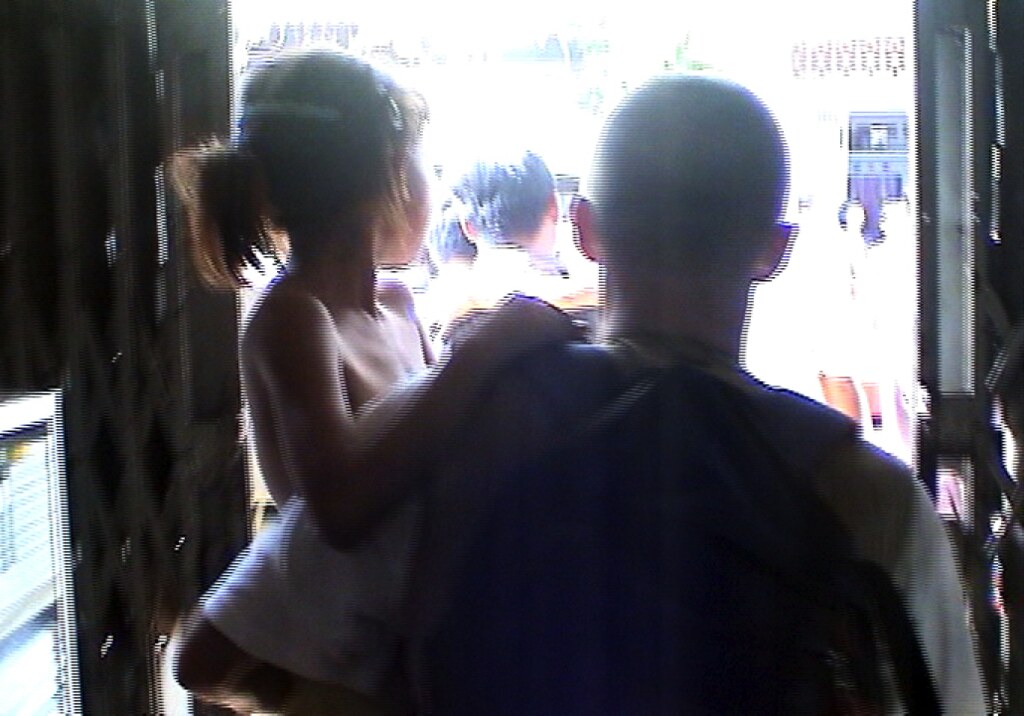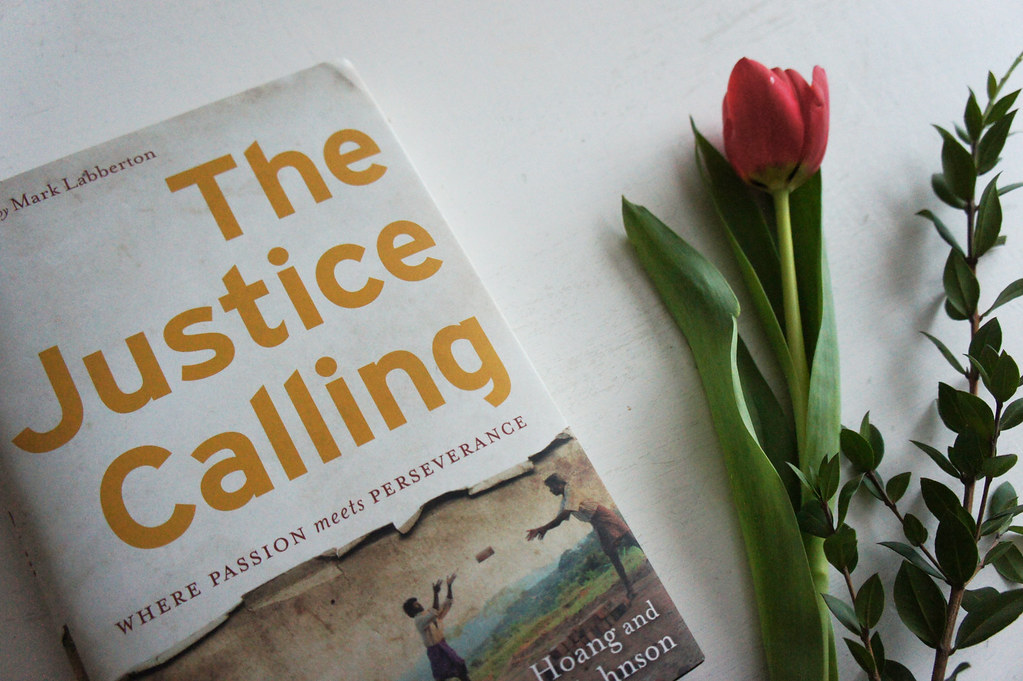The world erupted yesterday with the cry — We’re In It to End It — in it to end the modern day slavery of tens of millions of desperate people. What do we do with the ache of all the suffering in the world? My friend, Bethany Hoang powerfully leads world-changers into discovering the life-giving connection between seeking Jesus and seeking justice – knowing the love of God more deeply as we join Him in bringing beauty amid brokenness. She speaks, writes, and advises on behalf of organizations such as International Justice Mission after having served as Founding Director of IJM’s Institute for Biblical Justice for more than a decade. It’s a grace to welcome Bethany to the farm’s front porch…
The grainy black-and-white footage showed little girls smiling and giggling, gathered tightly in a small space.
One of them was only five years old, perched on the hip of a girl just a few years older.
Their smiles belied the words they spoke in their native Vietnamese — offering a menu of what sexual acts they would perform and the going rate for each.
The footage also showed young boys serving as tour guides, apprentice pimps who were trained to lead customers into the recesses of the brothels, where the youngest girls were being held.
These young girls were forced to smile; after vicious beatings they knew the consequences of noncompliance. And if the beatings weren’t convincing, the brothel owners reminded the girls that they knew their families and had full access to bring them harm.
The footage of these girls, taken in 2003, contained the first images I had ever seen of trafficking victims.
The girls had been trafficked to a town in Cambodia where the entire village – fourteen square blocks – was dedicated to the lucrative industry of selling children for sex.
If ever there was a place in the world that I could point to as evidence of how deeply this world is “not the way it’s supposed to be,” this little village in Cambodia was it.
How do we hold in tension the truth of God’s goodness and love for justice with the reality of pandemic suffering?
There are countless stories of people all over our world – people created by God for a life of wholeness and flourishing but who instead undergo a living nightmare of injustice.
How do we open our eyes and see the dire needs of our neighbors while holding fast to hope in a God who rescues, heals, and restores?


Bethany Hoang






Bethany Hoang: the day of rescue for the girls. IJM’s first major rescue operation with the Cambodian National Police in 2003.



Even those of us launching forth with the deepest passion for justice and conviction of God’s goodness can lose heart and fail to persevere over the long haul.
Everyone is vulnerable to derailment; injustice can breed disillusionment and doubt. Suffering can drive cynicism or even worse, despair.
But God invites us to come to Him – not in spite of doubt and derailment but in the midst of it.
Woven throughout Scripture is an unguarded type of prayer known as lament. To lament is to as “Why?” and “Why not?” as well as “What are you doing God?” and “Where are you?”
To lament is to pour out our hearts, holding nothing back. It is to pray without trying to be more full of faith than we actually are.
Lament is prayer that honors the honesty of pain and anger while also honoring the truth that God is the one who reigns and whose love never fails.
Lament holds in tension all the suffering that seems to make no sense with a determination to believe that God is just.
Lament draws us near to God when we are tempted to turn away.Asking “why” – the core question of lament – is not a betrayal of faith.
Directing our cries of lament to God can become a bold demonstration of faith, an acknowledgement of who God is and a determination to draw near to God rather than pull away.
“So you, by the help of your God, return, hold fast to love and justice, and wait continually for your God.” (Hosea 12:6 ESV)
Lament is a gift.
In the midst of everything going wrong around us – whether in the world at large or in the lives of people whose names and faces we know and hold dear –
lament is a gift given to help us hold fast to God.God invites lament because He knows our temptation to turn away rather than toward Him in the heat of hardship.
The more we probe Scripture to see how prophets and leaders and ordinary people lamented their circumstances, the more it becomes clear that God invites our questions and pleadings rather than our despair and silence.
God can handle the questions we bring; no question is too shocking or big for God.
What pain in your life leaves you raw?
What grief would you prefer to avoid altogether rather than face it through lament?
Where does the suffering of others intersect with your own heart in such a way that you are tempted either to run or close your eyes?
Our prayers might sound something like these:
God, I know You have full power to heal and to rescue and to restores. Why haven’t You healed?
Why do You seemingly stand by while children and even entire families are trapped and beaten and sold into slavery?
Why didn’t You heal my mentor (or my mother, my best friend, my child, my sibling) from cancer?
Why do millions of girls spend their childhoods in brothel dungeons?
Soldiers are using rape as a weapon of war against women and children – why don’t You break the arm of the wicked as Your Word says? How could You allow people to bring this kind of terror on one another?
If Your perfect love casts out fear, why am I still so afraid? Why don’t I have the courage to rise up and follow as You lead? When will I stop faltering in believing You?
Why LORD? You say that You command Your angels to guard and protect; You say that through fire and storm and flood You are with us; You say that even though the mountains crash into the seas You are still God.
You say that You have loved us with a love that is everlasting, a love from which we can never be separated.
Why are there times when we don’t see You or feel that love?
Habakkuk cried our “My God, why?” David cried out in the Psalms, “My God, why?”
Jesus too cried out, “My God, my God, why?”
In Jesus’ cries from the depths of suffering and violence on the cross – the deepest grief ever known – He carried our whys with Him.It’s a thing to remember who God is even — when you cannot see the truth of who He is in your midst.
All glory will be revealed (Is. 40:5; Rom. 8:18).
And darkness will never be the final word.
Bethany‘s new book, The Justice Calling: Where Passion Meets Perseverance, co-authored with Kristen Deede Johnson, is a comprehensive biblical theology of justice drawn from the whole story of Scripture, and invites us to know more intimately the God who loves justice and calls us to give our lives to seek the flourishing of others.
The call for everyone of us is the Justice of Jesus — and these pages will breathe life and hope into everyone serving on the front lines of brokenness. Pick up this book — pick up hope.








